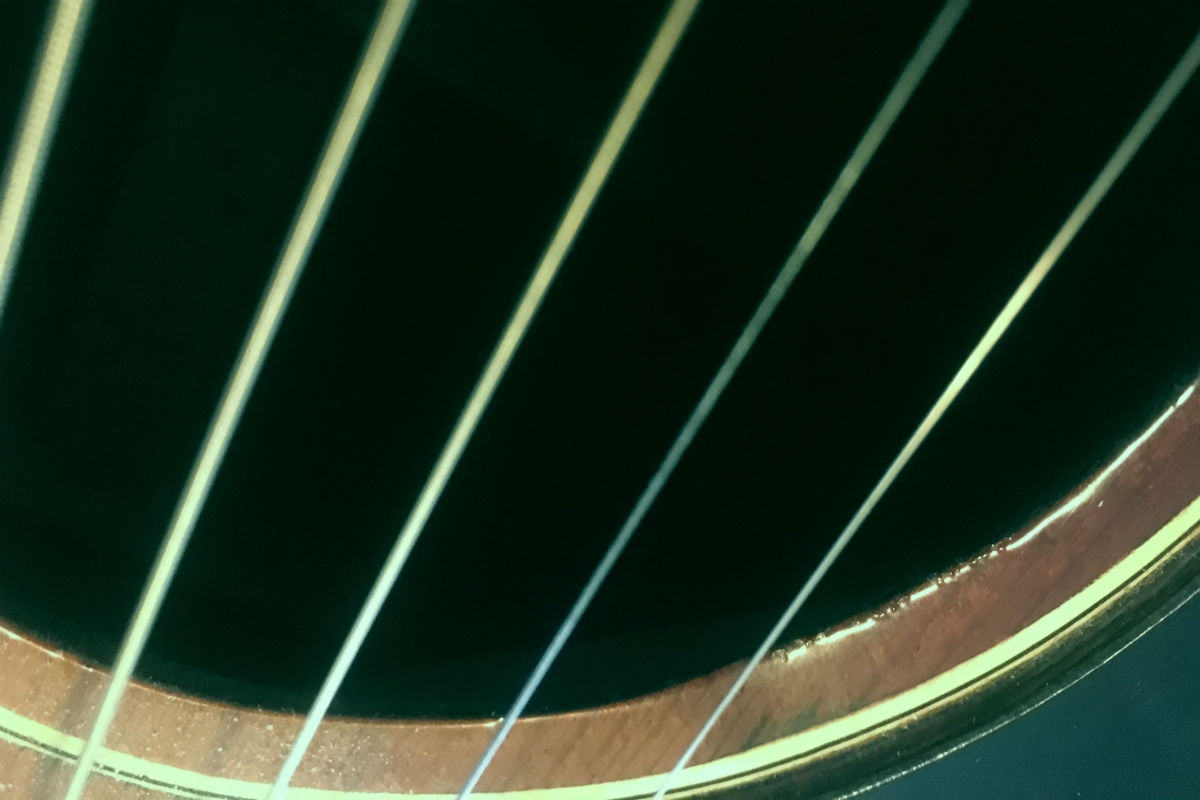Like most stories for me, this one begins with memories of my father. Many of the songs he would play on the guitar (and later after arthritis set in on the piano) would be chord/melody pieces – hammering out the fundament with his thumb and plucking the melody up top – and thus definable as American Primitive Guitar. Once guitar became interesting to me, and I picked up a few of the licks from those pieces, he immediately started offering bounties on Chet Atkins tunes (“I’ll give you $50 if you learn ‘Little Roundabout'”). That was hard – there was no youtube, and very few people to ask (Chet Atkins didn’t live next door) – so I moved on to other things.
If he had offered bounties on John Fahey, I might have stuck it out.
John Fahey and American Primitive Guitar
There is ample biographical information about John Fahey on the web, so I don’t need to delve too far into those particulars. Of utmost importance is the 1959 release of Blind Joe Death and the space/time portal it opened between the past, present, and future. Similar in texture to the rich tradition of fingerstyle country blues – a la Mississippi John Hurt or Elizabeth Cotten – but lacking vocals and some of the structural cues built around those performances. In fact, those who would have heard it at the time of its release probably would consider it relatively avant-garde.
A lot of attention is given to the nature of the release of Blind Joe Death because it provides a great call-to-arms for artists today. As the story goes, 20-year-old Fahey borrowed enough money from an episcopal minister friend of his to press 100 copies of the record on his own Takoma label. One side had his name in big black letters, and the other had the name of the album. He chose the name because it had familiar blues tropes and also the word death, which has its obvious visceral power. More so in 1959 than today for sure. He sent some to academics and other interested parties and put the rest in record stores and goodwill bins near his home.
I know that he re-recorded all the tracks on Blind Joe Death for subsequent releases and reissues, so it’s hard to know if this is the track from that 1959 record. It matches my vinyl copy, which is also a reissue obviously. There is a slightly more whacked out version on youtube that has a lot of reverb and more hesitant playing – which matches the tale of him recording in a church, but it also is lower in pitch so might just be a slowed take. I’ll put that here though because it is an interesting comparison.
Other personal favorites are are 1963’s Death Chants, Breakdowns & Military Waltzes and 1964’s The Dance of Death & Other Plantation Favorites.
Marisa Anderson and other New American Primitive Guitar Players
There I was, minding my own business driving to work, listening to KVRX – it was before 9 am, so they hadn’t switched to KOOP yet – and I heard this glorious music. Fortunately, they came on and announced that had been Pretty Polly off of Marisa Anderson’s Traditional and Public Domain Songs. At that moment I knew a: that I wanted to buy all of her records, and b: I wanted to write and record a bunch of songs like that.
I guess on some level I knew that there were people out there pursuing that old Takoma lightning. When I lived in Portland, OR, musicians were playing in that style (maybe even her), but I was caught up in the more Chicago-style blues scene. KVRX sure did knock it out of the park that day (and that’s not the only time).
There are quite a few other contemporary players in the American Primitive school worth checking out:
Chris Forsyth is damn good and has taken the American Primitive into an electric band setting – Solar Motels is a fun listen.
Cian Nugent is a total badass – here’s a tiny desk concert.
Daniel Bachman is fun and very traditional in his technique and tone – this is a cool outdoor performance.
Hayden Pedigo is a fantastic picker, and electronic musician, from West Texas.
William Tyler plays with some atmospheric effects and has a beautiful touch – listen to the Geography of Nowhere.
Oh, and although he is not American, Richard Dawson is my personal favorite Primitive guitarist. This is my favorite thing he has done; however, it is worth exploring his other work – he does big bold acapella numbers and sweet guitar ditties in addition to this kind of insanity.
Thanks for reading! You can check out my American Primitive Guitar album, The Fall Will Probably Kill You, on CD Baby, or Spotify or other music services. Here is my relatively complete discography, and recent videos and stuff from my various projects.


Awesome post, Eric! Other than Fahey, I’m not familiar with any of those musicians. I’m excited to check this out!